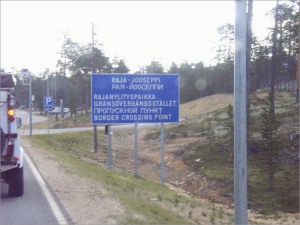Tips for exporters
- Generally, if goods are exported or imported between
a foreign company and a Russian company, the Russian company is responsible for the customs clearance procedures - In order to import goods into Russia and clear them through customs, an importer has to make all customs payments due under the chosen customs regime and comply with other customs legislation requirements (e.g., certification requirements)
- The import of certain goods (e.g., pharmaceuticals, meat, etc.) requires licences
- Russia has several special economic zones that offer customs benefits
 Russia’s customs policy has seen several important areas of development:
Russia’s customs policy has seen several important areas of development:
- Lowering customs duty on technological equipment imports;
- Simplifying the customs clearance process;
- Tighter customs control after the customs clearance of goods;
• Further development of customs integration between Russia, Belarus and Kazakhstan.
Import restrictionsCertain imports to Russia require permits, certification (e.g., of conformity, sanitation), licences and other approvals, which should be submitted to the customs authorities during the customs clearance process.
Russia imposes an anti-dumping duty on certain goods (e.g., metal pipes from Ukraine).
Customs duties
Classification of goods
The Russian tariff classification system is based
on the internationally adopted Harmonised Commodity Description and Coding System.
Valuation rules
The customs valuation procedure is established in line with GATT/WTO principles. The customs value is generally equivalent to the DAF/Russian border transaction value
of the goods concerned.
 Import duty applies to most goods. The majority of customs duty rates in Russia are ad valorem (i.e., a percentage
Import duty applies to most goods. The majority of customs duty rates in Russia are ad valorem (i.e., a percentageof the goods’ customs value). There are also specific duties for certain types of imports, calculated by volume, weight or quantity. Some duties have a combined rate incorporating the two and, therefore, the tax base may vary.
Base customs duty rates vary widely, from 100% but not less than EUR 2 per litre on spirits to 0% for some printed matter and certain priority imports. Zero duty applies,
for example, to a wide range of equipment and machinery. On average, duty rates fall between 5% and 20% of the customs value of goods. The base rates specified in the law apply to countries that enjoy Most Favoured Nation status. Certain raw materials and handmade goods from “developing” and “least developed” countries may be imported at 75% of the base rates or zero rates, respectively. Goods originating in other countries will be subject to duty at double the base rates.
The following goods are exempt from customs duty:
transit goods; goods imported by individuals for personal use (worth not more than approximately EUR 1,500 and weighing less than 35 kg); cultural valuables; means
of transport involved in the international movement of goods and passengers; humanitarian aid and some others.
Free trade agreements
Russia has adopted free trade agreements with countries of the Commonwealth of Independent States (CIS). Goods originating from CIS countries (e.g., the Ukraine) are exempt from customs duty for import to Russia (subject to certain conditions). Russia, Belarus and Kazakhstan form a Customs Union, and goods originating from these countries are not subject to customs duty within this Customs Union.
Excise tax
Certain categories of goods are subject to excise tax for import to Russia (e.g., alcoholic beverages, cigarettes, etc.) Generally, excise tax rates are specific (i.e., based on the volume, weight or other characteristics of goods).
Import VAT
 For most goods, the import VAT rate is 18% of the customs value, inclusive of customs duty and excise (if any). Food, a certain range of children’s goods and a limited range
For most goods, the import VAT rate is 18% of the customs value, inclusive of customs duty and excise (if any). Food, a certain range of children’s goods and a limited rangeof other goods may be subject to 10% or 0% VAT.
Customs processing fees
Customs processing fees are established as a flat fee and
vary from approximately EUR 12 to EUR 2,400 per customs declaration depending on the customs value of imported goods.
Payments
Customs payments are generally paid before or when submitting customs declarations to customs.
Export – Import General Business Tips Export – Import. Business Tips Uruguay Export – Import. Business Tips Chile Export – Import. Business Tips México Export – Import. Business Etiquette Peru BRAZIL. BUSINESS TIPS COLOMBIA. BUSINESS TIPS



